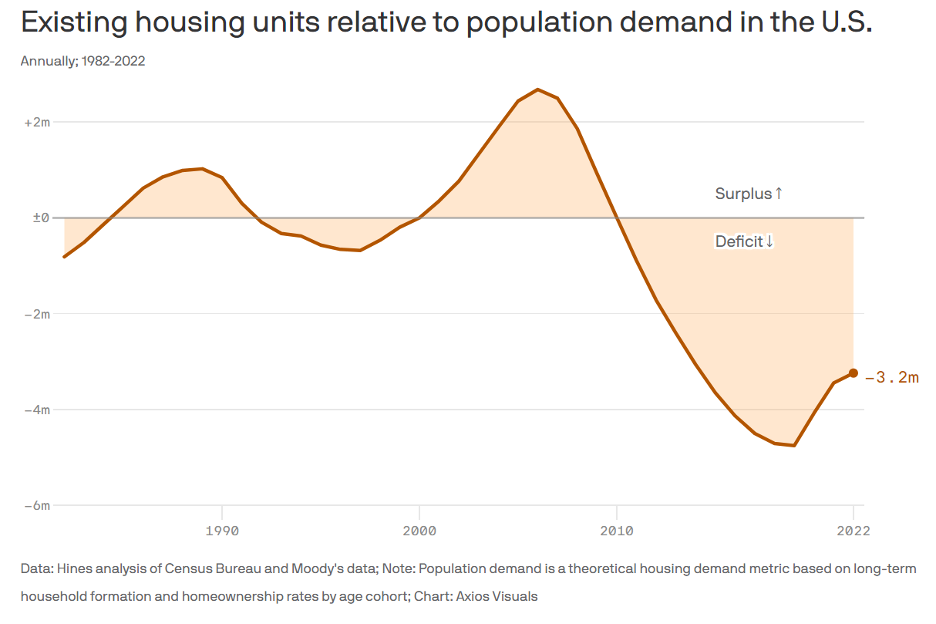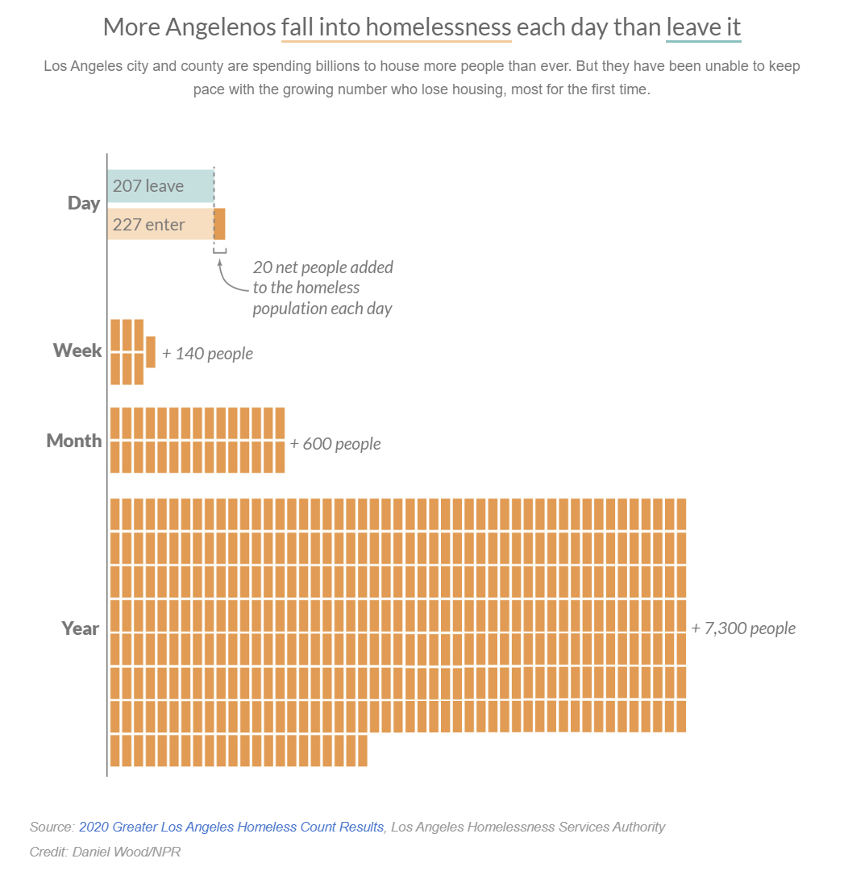Local leaders are leveraging emerging technologies, such as artificial intelligence (AI), to enhance data analysis, streamline administrative tasks and improve the accessibility of government services across a wide variety of topic areas. This blog focuses on how cities can use AI tools to advance equitable and inclusive housing policies. The following chart highlights the expansive nature of the housing crisis, which estimates that the U.S. is short 3.2 million homes, causing prices to increase and exacerbating inequities within cities.

Understanding AI Terms
Although generative AI tools, like Bard and ChatGPT, are taking center stage in the emerging technology conversation, cities have been using other types of AI-based tools for many years to explore solutions to everything from reducing the risk of lead poisoning in children to improving police-community relations by proactively identifying officers at risk of adverse incidents. Broadly, AI is getting machines to do things that require human intelligence. Generative AI is a subset of AI that creates content, such as text, videos and images, in response to questions and prompts from a user based on data (i.e., a large language model) used for training. To learn more about AI and its different types check out OECD’s AI-Principles Overview.
AI Use Cases for the Housing Sector
One area where cities can leverage AI to improve housing is through enhanced data analytics to detect patterns and forecast future trends. For example, Los Angeles, CA, is piloting an AI program that uses program data from seven county agencies to preemptively engage with those who are at risk of becoming homeless. These individuals are then contacted by case managers who can connect them to a range of relevant social services. Other potential use cases include cities using AI tools to project housing demand and supply, along with socio-economic neighborhood-level data, to inform future strategic investments into affordable housing.

Another area where AI could influence local housing policy is through streamlining administrative processes. For example, Columbus, OH, issued an RFP for an AI-based solution to automate routine administrative tasks associated with their Section 8 Housing Choice Voucher to reduce employee burden and better meet program participant’s needs. While recognizing the benefits of AI tools to streamline governmental processes, it is important to acknowledge the corresponding risks. AI tools reflect the data that it is trained on, and local leaders must be vigilant to ensure that historical legacies of bias are not similarly reflected in these new tools and processes.
A final area to consider is how AI tools can improve residents’ access to government services. AI tools make it easier for local government leaders to meet residents where they are at and ensure they have the information they need. For example, New Orleans used an AI technology to automatically translate 911 calls to improve communication with all residents, especially for those with limited English proficiency. Similarly, New York City has released an AI chatbot on their website to provide better information for local business owners. These technologies could be applied more broadly to the housing sector, such as with the process of applying for housing vouchers or other housing-based social service programs to reduce the administrative burden and increase accessibility.
The diverse array of emerging AI technologies has the potential to help address both long-term structural issues and short-term challenges in the housing sector. Data analysis and advanced pattern recognition could inform how local leaders invest in housing supply to address the significant gap in available homes. Streamlining operations and improving accessibility could improve the quality of life for residents who are experiencing challenges in accessing critical government services.








